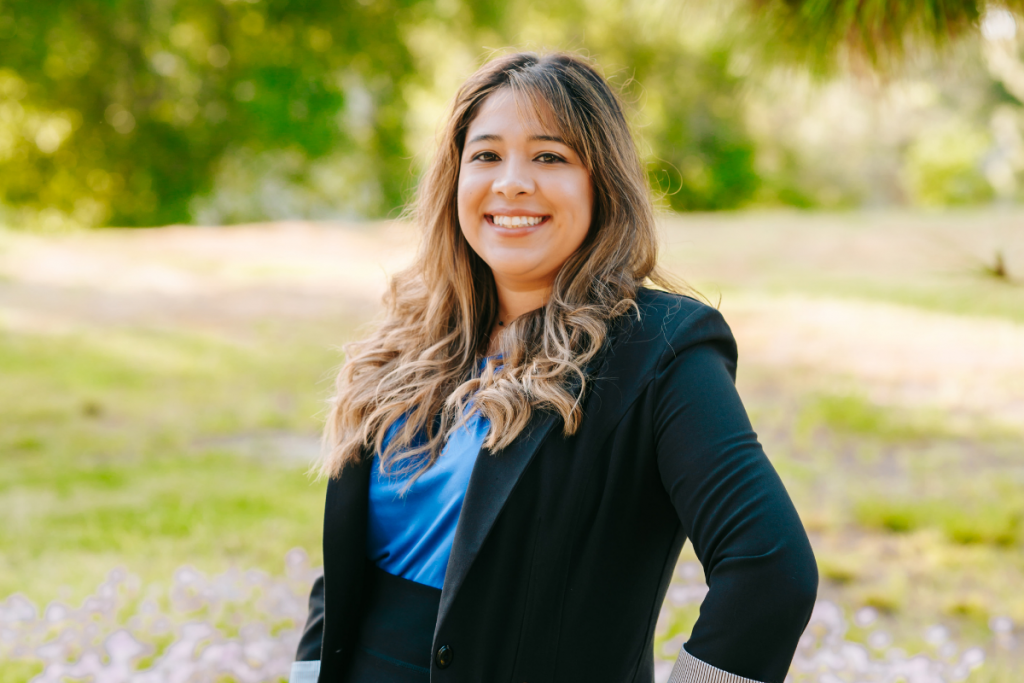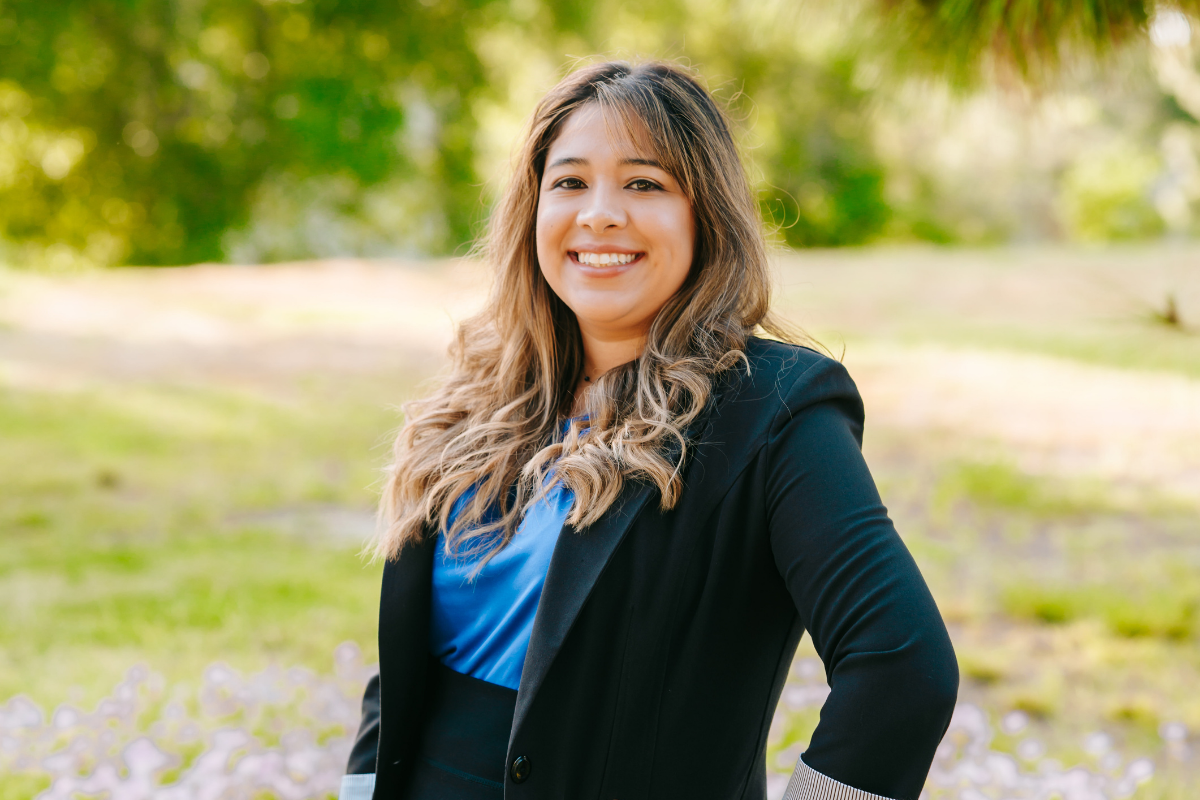
Inspiration for hard work and determination can come from places unknown. For University of California, Irvine PhD student Anjelica M. Cárdenas, the source of her perseverance is clear: the hardworking grandfather she lost at a young age.
When Cárdenas was four years old, her grandfather died from advanced brain cancer. As she grew older, she became interested in studying the disease. Now, through her biomedical research, Cárdenas pursues new information and therapeutic targets for better outcomes.
“Going through my undergrad and my master’s programs at Cal State Northridge,” she says, “I started learning about how drugs interact with the disease. My love for pharmacology grew with the opportunity to use molecules to perturb the system and to see what’s happening at the molecular level.”
Cárdenas first enrolled in UCI’s PhD in Pharmacological Sciences program in the fall of 2016. The final steps in her PhD journey are the dissertation defense on May 10 and commencement in June. Cárdenas will enter a postdoctoral fellowship at UCLA, where she will use pharmacology drugs to understand radioresistant brain cancer.
What would her grandfather say about her success in science?
“I think he would be really proud,” she says. “He started as a migrant worker and worked his way to become a manager at a restaurant. I think he would be excited about my research but even more proud of all the hard work I’ve put in to reach my dreams and goals.”
Cárdenas was born and raised in the High Desert of Southern California. Her educational path began at Cal State Northridge, where she earned her bachelor’s degree in molecular and cell biology in 2011 before receiving a master’s in biology in 2014. She credits CSUN’s Michael Summers, PhD, and UCLA’s Harley Kornblum, PhD, for opening her eyes to new opportunities in science and research.
“Dr. Summers and Dr. Kornblum were principal investigators I studied with,” she said. “They helped me by asking what my goals and interests were and suggesting opportunities that I had never conceptualized or knew were possible, such as grad school.”
During her time as a PhD student at UCI, Cárdenas’ research has focused on how adolescent nicotine exposure increases the subsequent use of other drugs such as cocaine, methamphetamines, or opioids.
In reflecting on her time at UCI, Cárdenas is thankful for the help of her mentors, Shahrdad Lotfipour, PhD, and Frances Leslie, PhD, for helping to expand her skill set as a scientist.
“Together, they pushed me forward both scientifically and in my professional development,” she says. “I’ve definitely expanded my skillset. I come from a more molecular, cell culture background and I’ve transitioned in my PhD to behavioral research. It’s opened a new door of experiments and thoughts that I can now move forward with.”
When asked about Cárdenas’ impact as a researcher and student, Lotfipour said: “Transformational! Not only in the laboratory but also with our laboratory team and Anjelica’s network of colleagues. A leader, scientist, and passionate advocate for positive change within and outside the laboratory. I have no doubt that Anjelica will achieve any goal she sets her mind to, and I look forward to all her accomplishments and discoveries to come!”
Because of her type of research, Cárdenas was an essential worker early on in the COVID-19 pandemic. That meant mostly working alone throughout her projects. Nonetheless, she was able to build a network of friends that made her UCI experience even more meaningful.
Cárdenas was a member and part of the board at Society for Advancement of Chicanos/Hispanics and Native Americans in Science (SACNAS) and participated in many Diverse Educational Community and Doctoral Experience (DECADE) events. She also earned the 2018 Ford Foundation Predoctoral Fellowship, the 2020 UC President’s Pre-Professoriate Fellowship, and Latino Excellence and Achievement Award in 2020.
“I’m proud of the community I built at UCI,” she says. “The friends and the connections I made outside of lab were really important in creating a work-life balance.”
In addition to the groundbreaking research that awaits in Cárdenas’ future, she also wants to give back to the science community by mentoring undergraduate students.
“I want to continue to teach these students the rationale behind why we’re doing the experiments and help them think through and comprehend the entire project,” she says. “It’s really exciting to me to see them learn and grow.”
